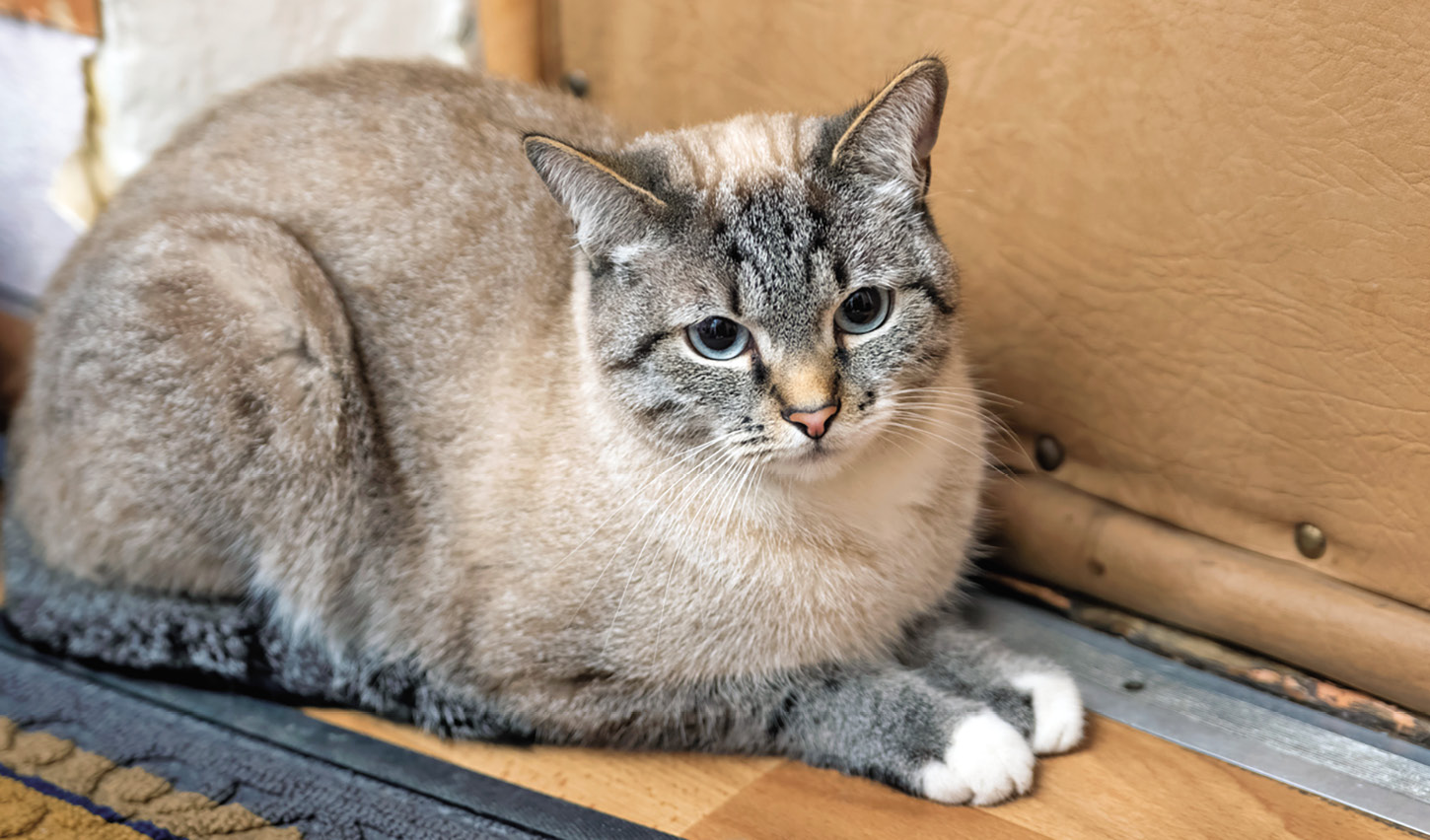Cat lovers have long known that cats are attached to us and research has confirmed this (see “The Cat-Human Bond” at catwatchnewsletter.com/behavior/the-cat-human-bond/). But sometimes this can lead to problems.
Signs of Separation Anxiety
Diagnosing separation anxiety can be difficult because the signs mimic many other behavioral and health issues that cats can have. Research done by board-certified veterinary behaviorist Stefanie Schwartz identified specific behaviors that commonly occur in cats who are upset when left alone:
- Inappropriate urination (frequently on the owner’s bed)
- Inappropriate defecation (more likely in spayed female cats)
- Excessive vocalization
- Destructive behavior (more common in neutered male cats)
- Excessive grooming (more common in spayed female cats)
Another study, published in PLOS ONE in April 2020 by de Souza Machado et al, also found that cats with separation anxiety may display depression, aggressive behaviors, or agitation. This study also found that cats were more likely to experience separation anxiety if they didn’t have access to toys and were the only animal in the house.
If your cat is showing any of these behaviors, the first step is to discuss the problem with your veterinarian, who may do testing to rule out medical issues such as urinary tract infections, diabetes, or skin infections.
What About My Cat?
Separation anxiety isn’t as common in cats as it is in dogs, likely because most cats are more independent.
Risk factors for separation anxiety in cats include:
- being indoor-only, especially if the cat only has one human companion
- being the only pet in the household
improper socialization as a kitten due to being orphaned, weaned too early, or hand-raised with bottle feedings (those early cat etiquette lessons from mom are valuable!)
- a major change in routine
- being a female cat
Thankfully, none of these conditions guarantee that your cat will develop separation anxiety, and there are plenty of things that you can do both to prevent it and to alleviate it if it does happen.
Environmental Management
Regular playtime, food puzzles, scavenger hunts for treats and toys, and visual stimulation such as a TV show designed for cats or a window perch that overlooks a bird feeder are all excellent ways to keep your cat mentally and physically engaged. If she is tired when you leave for work or an outing, she will be more likely to nap peacefully while you are out. You can also set up games to keep her occupied when you aren’t home.
Don’t make a big deal out of leaving. Keep departures calm and simple. If your cat doesn’t think you’re upset, she will be less likely to react dramatically. You can also practice your going-out routine at random times of day when you won’t be gone long, such as when you go to get the mail or step outside to greet a neighbor. These random quick moments will teach your cat that the routine of you grabbing your keys and saying goodbye is nothing to stress about.
Try Feliway. Feliway and other cat pheromone products are synthetic versions of the feline facial pheromone. This comforting pheromone can encourage some cats to be calm and relaxed and is worth a try.
Encourage independence. We know it’s hard, but don’t cuddle with your cat 24/7. Reward her for napping away from you and provide enrichment activities that she can enjoy by herself, even when you are in the house. If she is already used to standing on her own four paws sometimes, she will be more comfortable when you are away.
Consider adding another pet. This method is not appropriate for all cats, as some really do not like the company of other cats or animals. Think long and hard about your cat’s personality and your lifestyle before adding a new pet. When adopting a new cat in the first place, bringing home siblings or a bonded pair can be an excellent way to keep two buddies together and ensure that they will always have company that they enjoy.
Supplements and Medications
If environmental management and behavioral modification aren’t helping, or if your cat has severe separation anxiety, medications may be needed.
Schedule an appointment with your veterinarian or a veterinary behaviorist to discuss your cat’s symptoms and what your goals are for his or her behavior and stress levels. They can use the information you provide to recommend a product they think might help or prescribe a medication.
Anxiety medications may be needed long-term for some cats. Others can be weaned off of them once you have established good routines and practices to alleviate stress when you leave.




